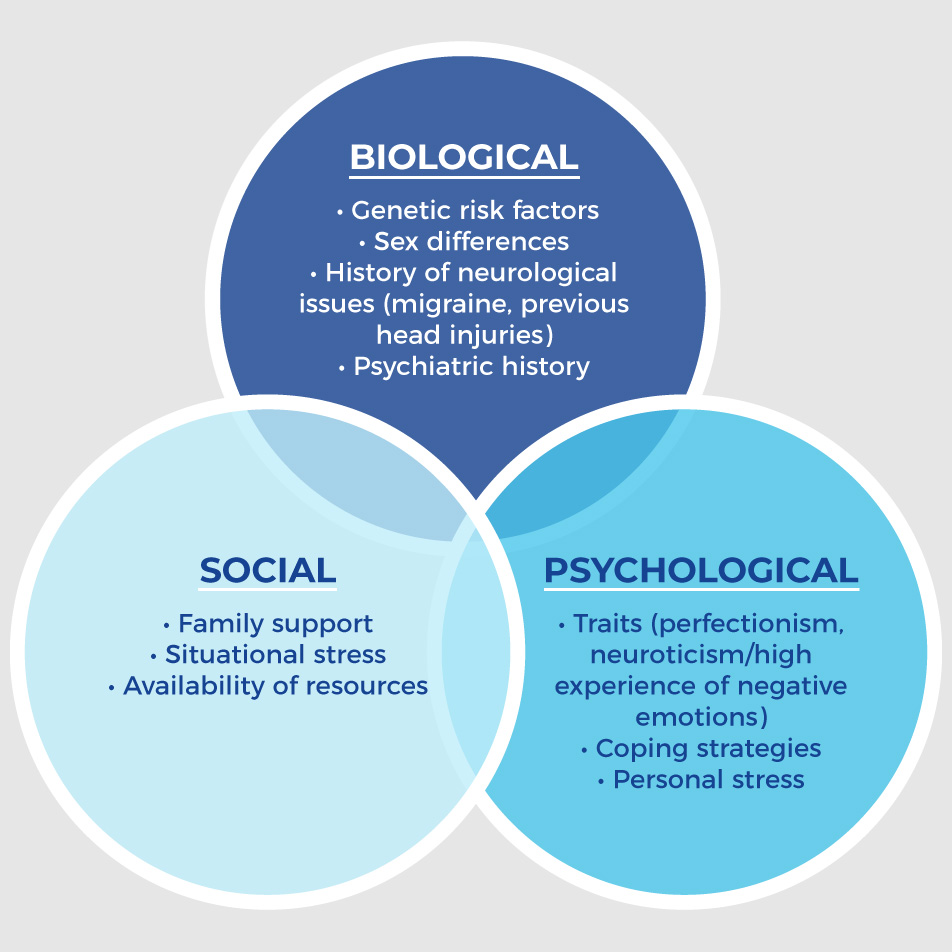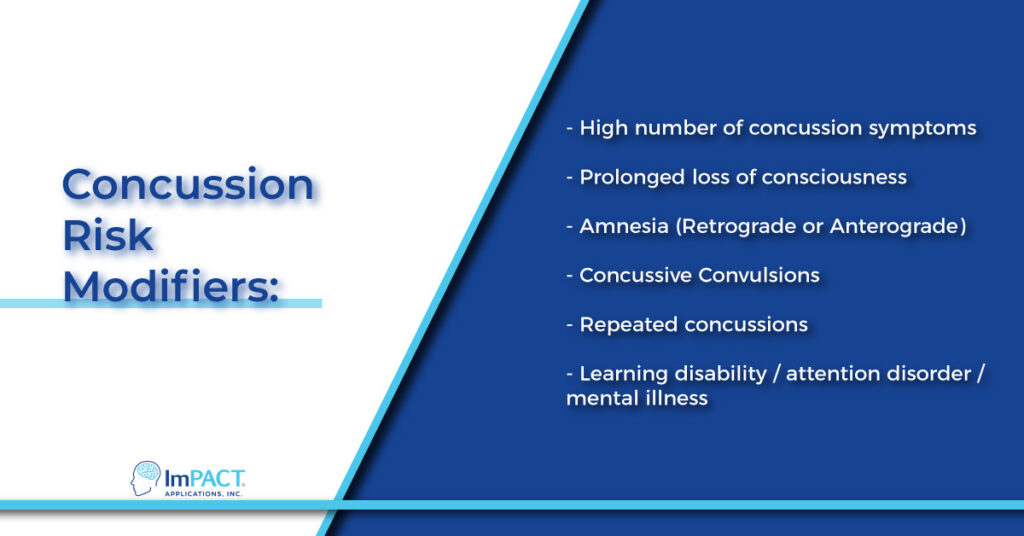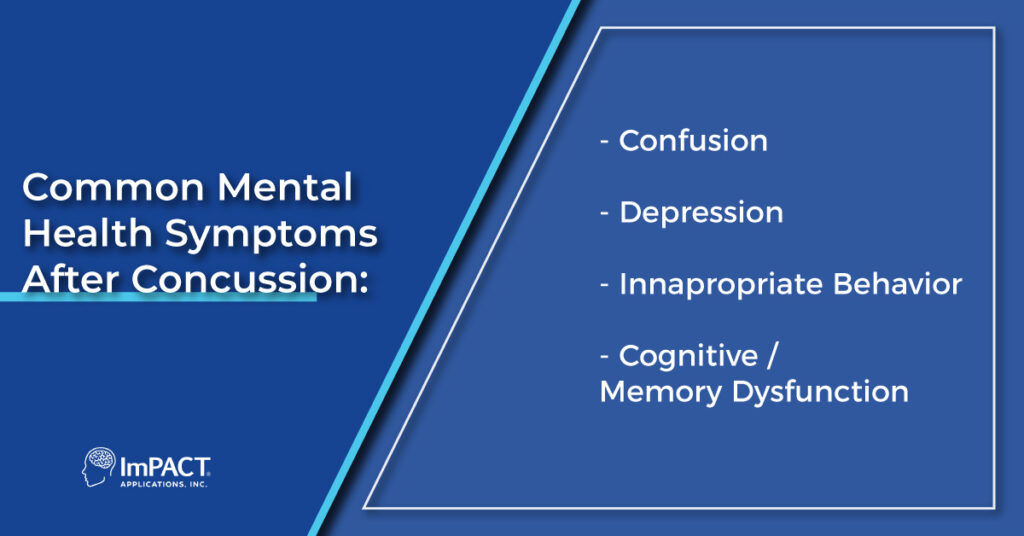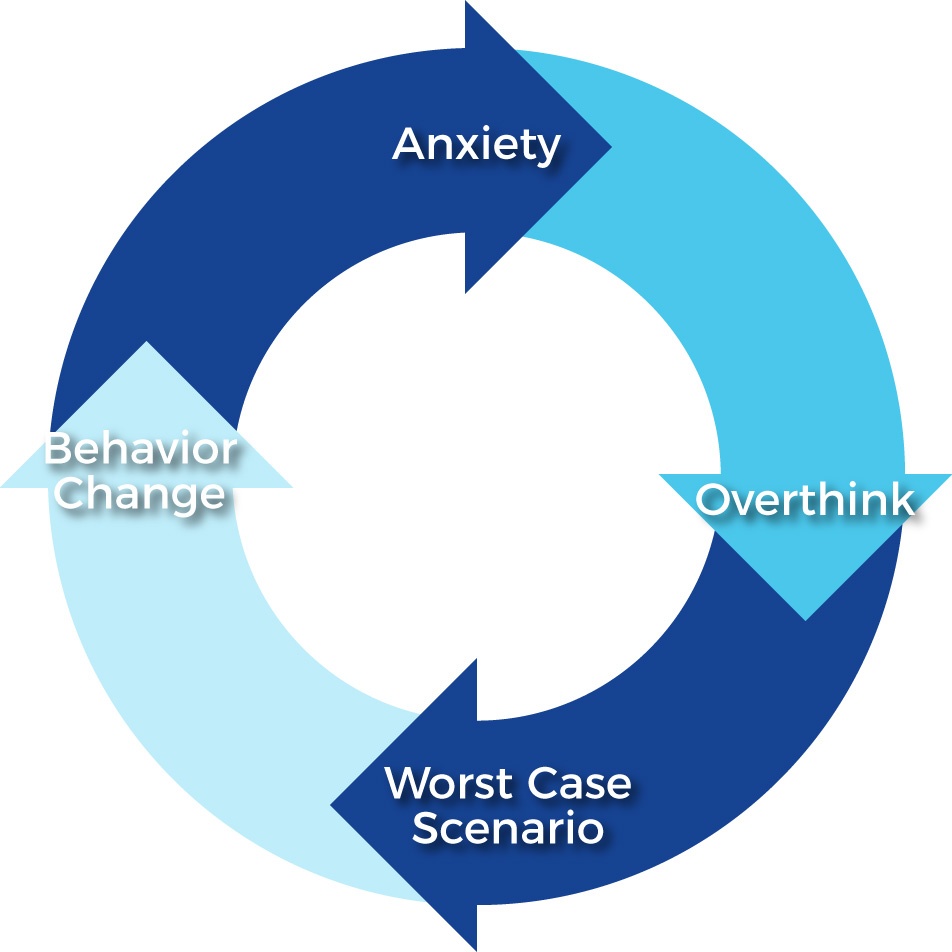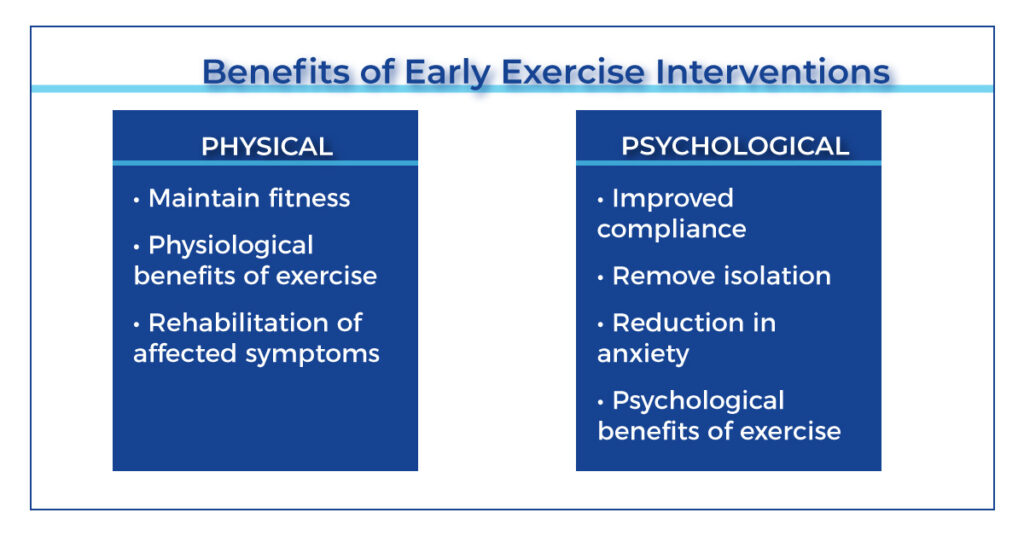Concussions and Mental Health
Learn how concussions affect mental health outcomes and how to address them in your treatment plans.
Based on a presentation given by Dr. Martin Mrazik, clinical neuropsychologist and professor at the University of Alberta.
The biopsychosocial model is a way of explaining why there are different outcomes related to concussions and why some patients recover more quickly than others.
Biological: Genetic risk factors, sex differences, history of neurological issues (migraine, previous head injuries), psychiatric history
Psychological: Traits (perfectionism, neuroticism/high experience of negative emotions), coping strategies, personal stress
Social: Family support, situational stress, availability of resources
Concussion risk modifiers are variables that are typically associated with more complicated or prolonged outcomes.
Some common risk modifiers include:
- Reporting a high number of post concussion symptoms
- Prolonged loss of consciousness (LOC)
- Amnesia (before or after the hit)
- Concussive convulsions
- Repeated concussions
- Learning disability (LD) / attention disorder / history of mental illness
It’s important for clinicians to conduct a thorough clinical interview in order to understand these variables and how they may affect recovery.
There are some common concussion symptoms that clinicians should check for (Mental health symptoms are bolded):
- Nausea / vomiting
- Dizziness
- Confusion
- Fatigue
- Lightheadedness
- Headaches
- Irritability
- Disorientation
- Noise sensitivity
- Feeling of being stunned
- Signs of depression
- Inappropriate behavior
- Decreased work / playing ability
- Inability to perform daily tasks
- Cognitive and memory dysfunction
- Sleep disturbances
- Vacant stare
- Poor balance
Clinicians may use a post concussion symptom checklist, like the one available as part of ImPACT, during the initial evaluation to figure out how the patient is feeling. This information becomes important not only to understand the patient’s head injury, but for their concussion treatment as well.
Anxiety is characterized by future oriented emotion and feelings of uncontrollability or unpredictability. Clinical difficulties begin to occur when avoidance and worry become pervasive, intense, and uncontrollable.
There are some common symptoms of anxiety including:
- Nervousness
- Feeling more emotional
- Hypervigilance
- Ruminative
- Thoughts / feelings of being overwhelmed
- Depressive symptoms
- Anger, hostility / irritability
- Loss of energy
- Fatigue
- Feelings of hopelessness
Individuals who have a history of mental health issues are more likely to experience mood outcomes like anxiety and depression after concussion.
The “anxiety cycle” explains how anxiety can significantly affect a person’s concussion recovery and lead to prolonged outcomes. When a person is anxious they tend to overthink and focus on the worst case scenario which stops them from doing their normal activities.
A helpful question for clinicians to ask may be: How has your behavior changed as a result of the concussion?
The answer to that question will give you an idea of the level of anxiety that the patient is experiencing. A significant change in behavior is oftentimes based on anxiety and can be problematic in terms of symptoms. One of the most beneficial things you can help your patients with is resuming their normal activities in a methodological, gradual way.
In 2012 the recommendation for treating concussions was complete rest. This means that concussion patients were told to rest in a dark room and do no cognitive or physical activity whatsoever. Now that more concussion research has been published, we know that this method is counterproductive and anxiety inducing. The current recommendation is to engage in a 24-48 hour period of rest followed by symptom limited activity. We want patients to get active as soon as possible because it has both physical and psychological benefits.
Physical benefits:
- Maintaining fitness
- Physiological benefits of exercise
- Rehabilitation of affected systems
Psychological benefits:
- Improved compliance
- Reduce isolation
- Alleviate anxiety
Untreated mental health issues can complicate and prolong concussion recovery. It’s critical for clinicians to understand common anxiety / mood symptoms, screen for symptoms of anxiety, and address them in their treatment plans by helping patients gradually return to their normal activities.
